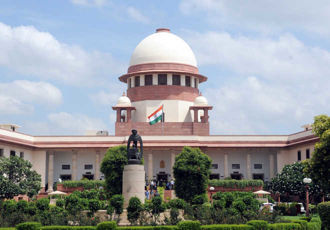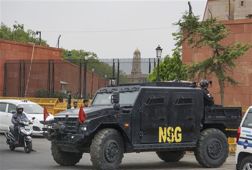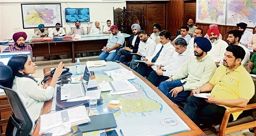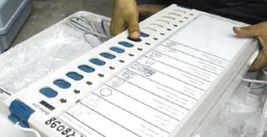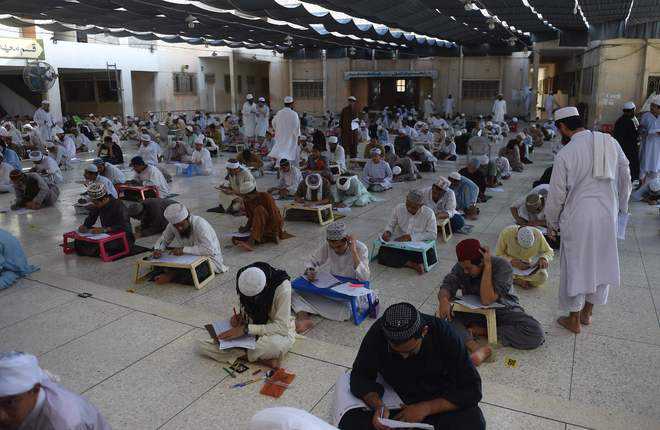
Derailed: After gradual legal Islamisation, the Islamisation of education was a natural corollary. Madiha Afzal, rather bravely, suggests course corrections to Pakistan's ideological construct. But she does not spell out the high water-mark of motivation that would compel Pakistani politicians and the State to change course
Sandeep Dikshit
This month has been a bonanza for Pakistan watchers. The blockbuster is, of course, Husain Haqqani’s book, Reimagining Pakistan, another treasure trove from the former Pakistan Ambassador to the US. His book was bound to create waves because the self-exiled Haqqani is in the cross-hairs of the Pakistan Deep State. The book’s promotion was assisted by his deep roots in US think-tanks and the State Department and the sheen that comes with the Haqqani couple being a fixture among the western security circles.
Madiha Afzal, in comparison, is just starting out. But her intellectual dazzle is apparent: assistant professor at Johns Hopkins, preceded by a stint at University of Maryland and a PhD from Yale in development and political economy. This means double-dealing spooks, inveterate militants, crafty army chiefs and shifty politicians do not monopolise the narrative. There is space for the ordinary Pakistani, his fears and aspirations as well as societal nuts and bolts such as education that shape the attitudes of a state and its people.
For Indians, this latest primer helps understand Pakistan’s different strands of militancy, their varying acceptance by the Pakistani society and state (defensive\/ideological\/sympathetic) as also their justificatory narratives on America, India and Islam. The tale is becoming increasingly repetitive because of the dependence on the same body of literature but has a ring of truth about it.
The gradual legal Islamisation of early post-Jinnah elite in the guise of framing an Islamically informed constitutional order and meeting Islamic ethical and social concerns gives an eerie feeling about the impending downward slide towards accommodation of the mullah in the affairs of the state: the anti-Ahmadi laws (1985), the blasphemy laws (1982 and 1986). The Republic of Pakistan became the Islamic Republic of Pakistan only in 1962 and Islam became the state religion in 1973. The result was violation of the principles of equality and freedom of speech and religion that engenders intolerance and, finally, vigilante violence and lone-wolf attacks.
After legal Islamisation had gathered enough critical mass, Islamisation of education was a natural corollary. “Pakistan ideology” began appearing in text books (along with five pillars of Islam) to establish that religion permeates politics, society and culture while ignoring the region’s unIslamic or pre-Islamic history and culture. The extensive analysis of data and field work in universities and colleges provide a different inflexion from the usual top down security narratives, such as the complete absence in O level textbooks (somewhat like the ICSE in India) of “Pakistan ideology”, very few references to Islam and generally a more tolerant attitude.
It was inevitable that once the concept of Jihad became an embedded political tool for sanctioning violence on Afghanistan and Kashmir issues, the Pakistani society began to consider it only as an armed struggle instead of its real meaning of a personal struggle for righteousness as well as to protect the Muslim umma by war.
Madiha Afzal, rather bravely, suggests course corrections to Pakistan’s ideological construct. It could fall on receptive ground because the two mainstream political parties — the PPP and PML (Nawaz) — frequently evoke Jinnah’s progressive vision for Pakistan and publicly celebrate Holi and Diwali. But civilian governments have frequently pandered to the Right wing just days after reassuring the Left. Despite catering for both opposing impulses, it is only the centre that can provide a major shift to Pakistan.
Pakistan does need to self examine in order to shift the narrative from its repressive commitment to religion. India, too, has a major role to play by helping it shed the feeling of insecurity from its larger neighbour that had been responsible for many of the course shifts.
There is a laundry list of political and social initiatives but Madiha also retains a realistic outlook by pointing out that the Islamists are sure to oppose legal reforms, reform in school curricula and regulation of madarsas. Why don’t the mainstream politicians call the Islamists bluff considering that they fare poorly in elections? That is because politicians fear the street power of the Islamists though they are not averse to using them from time to time to gain legitimacy. Thus, they exert a direct control on the society and on the state as well.
For Pakistan to move towards pluralism and openness, the politicians need to realise they have an upper hand over the Islamists. As also that military operations alone do not stamp out terrorism. But Madiha, as most writers before her, does not spell out the high water-mark of motivation that would compel Pakistani politicians and the State to change course.






















